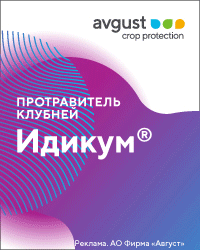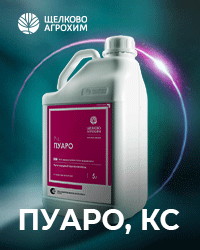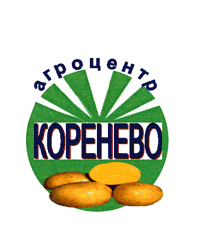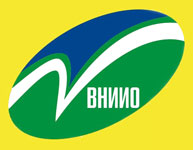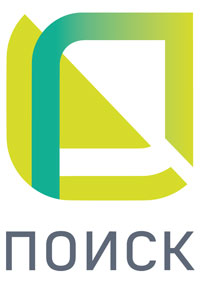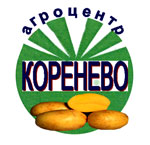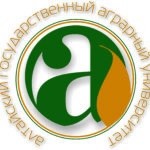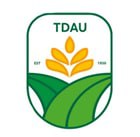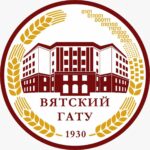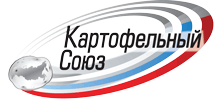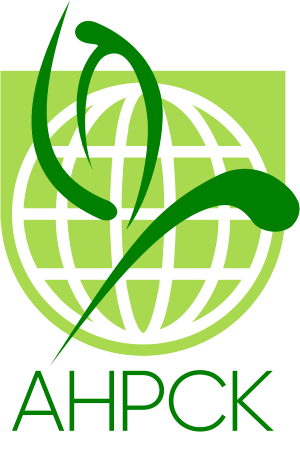UDC 632.3; 632.911; 633.491
https://doi.org/10.25630/PAV.2021.27.84.002
Kolychikhina M.S., Beloshapkina O.O.
The biological effectiveness of Pharmaiod (100 g/l iodine) and Immunocitophyt (20 g/kg of ethylic ester of arachidonic acid) as inducers of potato resistance to viruses was evaluated in small plot trials (Moscow) and field experiments in the Astrakhan, Lipetsk and Moscow oblast in 2015–2016 and 2018. In the Lipetsk oblast, the potato variety Ramos was infected with the potato virus Y (PVY) and the complex infection of the potato viruses M and S (PVM + PVS); in Astrakhan oblast on Impala variety, the PVM + PVS and PVM + PVS + PVY virus complexes were noted; in Moscow oblast the potato variety VR-808 was infected with PVY. In 2015–2016 in small plot trials the biological effectiveness of Pharmaiod against PVY on Red Scarlet variety averaged 76.4%, in 2018–73.4% and Immunocitophyt – 47.4% and 48.4%. The yield increase from the use Pharmaiod was 21.6–34.4%, and from Immunocitophyt – 17.0–21.3%. The biological effectiveness of Pharmaiod and Immunocitophyt against the M-virus on Adretta variety in 2015–2016 was 70.8% and 51.1%, in 2018–56.5% and 41.3%. The total yield in 2015–2016 increased by 35.2% from the use of Pharmaiod, from Immunocytofit by 16.7%, in 2018, the increase was by 24.0% and 15.3%, respectively. In the farm of Moscow Oblast, the effectiveness of Pharmaiod was 74.9%, the pre-planting treatment of tubers did not have a significant effect. In Lipetsk oblast, the biological effectiveness of Pharmaiod averaged 73%, Immunocitophyt – 52%. The total yield increase from the use Pharmaiod is 9.1 t/ha, from Immunocitophyt – 3.8 t/ha, when the yield in the control variant was 24.0 t/ha; in 2016–6.8 t/ha and 3.3 t/ha, in control – 19.5 t/ha. In 2016 in Astrakhan oblast the biological effectiveness of Pharmaiod was 73.2%, the increase was 8.6 t/ha, in Immunocitophyt these rates were 53.2% and 5.2 t/ha, in the control 18.9 t/ha.
Key words: potato, viruses, Pharmaiod, Immunocitophyt, biological effectiveness, productivity
Kolychikhina M.S., research fellow of testing plant protection products laboratory, Pharmbiomed Company. E-mail: m.kolychikhina@pharmbiomed.ru
Beloshapkina O.O., Doctor Sci. (Agr.), prof., Russian State Agrarian University - Moscow Timiryazev Agricultural Academy. E-mail: beloshapkina@rgau-msha.ru
- Poliksenova V.D. Induced plant resistance to pathogens and abiotic stress factors (the example of tomato). Bulletin of BSU. 2009. Ser.2. Pp. 48–60. (In Russ.)
- Mechanisms of plant resistance to infections. M.R. Sharipova, N.P. Balaban, A.M. Mardanova, Ch. Nyamsuren, L.R. Valeeva. Horae Kazan. Univ. Ser. Natural Science. 2013. Vol.155. No4. P. 29–58. (In Russ.)
- Kolychikhina M.S., Beloshapkina O.O. Protection of potato against viruses in the field. Potato and vegetables. 2017. No8. Pp. 27–30. (In Russ.)
- ISO 33996-2016. Seed potato. Technical conditions and methods for determining quality. (In Russ.)
- Guidelines for registration tests of fungicides in agriculture. Ed. by Dolzhenko V.I. St. Petersburg. VIZR. 2009. 378 p. (In Russ.)
- Kolychikhina M.S., Beloshapkina O.O. and Phiri C. Change in potato productivity under the impact of viral diseases. IOP Conf. Series: Earth and Environmental Science 663 (2021) 012035. Doi:10.1088/1755-1315/663/1/012035 [Web resource]. URL: https://iopscience.iop.org/article/10.1088/1755-1315/663/1/012035/pdf Access date: 16.09.2021
For citing: Kolychikhina M.S., Beloshapkina O.O. Evaluation of the biological effectiveness of inducers of resistance to viral diseases and their impact on potato yield in the field. Potato and vegetables. 2021. No10. Pp. 32-36. https://doi.org/10.25630/PAV.2021.27.84.002 (In Russ.).

